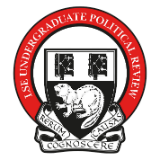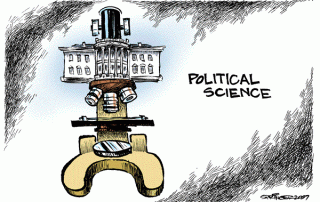Our Methodology and Research Design articles summarise the key points from GV249 and PH203.
GV249: Research Design in Political Science
Research design in political science incorporates quantitative techniques of social science into the design, conduct and analysis of political science research. This begins with the formulation of a research question, whether causal or descriptive, and attempts at the development of a theory and empirically testable hypotheses. It includes a discussion of different types of data and measurement and the all-important issue of correlation and causation. While the focus will be on randomised controlled trials, there will also be an exploration of quasi-experimental designs including regression discontinuity graphs and difference-in-difference curves. Finally, it incorporates problems with regards to research ethics and research integrity, along with potential solutions. This will act as a starting point for students aiming to conduct their own research projects or undergraduate dissertations in political science as well as equipping them with the tools and knowledge to evaluate published and unpublished work.
– Mashal Ijaz, BSc Politics and International Relations ’21
PH203: Philosophy of Social Science
The Philosophy of Social Science (PH203) explores some of the key philosophical problems with social science and the social sciences. It asks questions like: What are the ontological foundations of social science? What are the methods of the social sciences? Can the social sciences produce laws? Should the social sciences be reducible to the natural sciences? What is a social action? What are social facts? Can social groups have intentions and agency? What kinds of experiments operate in the social sciences? What are memes? And draws from a complex range of thinkers including: Karl Popper, J.S. Mill, W.E.B. Du Bois, Charles Taylor, Max Weber, Émile Durkheim, Ian Hacking, Donald Davidson, and Sally Haslanger. This course follows on well from PH103, and works as a natural companion to anyone interested in PH201 Philosophy of Science. It also provides a philosophical background to a wide range of advanced social scientific modules, but particularly those in the Government, Psychological and Behavioural Science, Philosophy and Sociology departments.
I hope that with these articles I might be able to provide useful background information and supplementary explanations to some of the more challenging topics, arguments and texts. My articles will be posted fortnightly, and will focus on some of the main weeks and themes of the course as I see them (e.g. Methodological Naturalism V. Methodological Holism, Collective Intentionality, Shared Agency). Ultimately, my aim is to make the challenging and dense material of PH203 both more accessible – and more engaging!
– Jack Bissett, BSc Politics and Philosophy ’21


